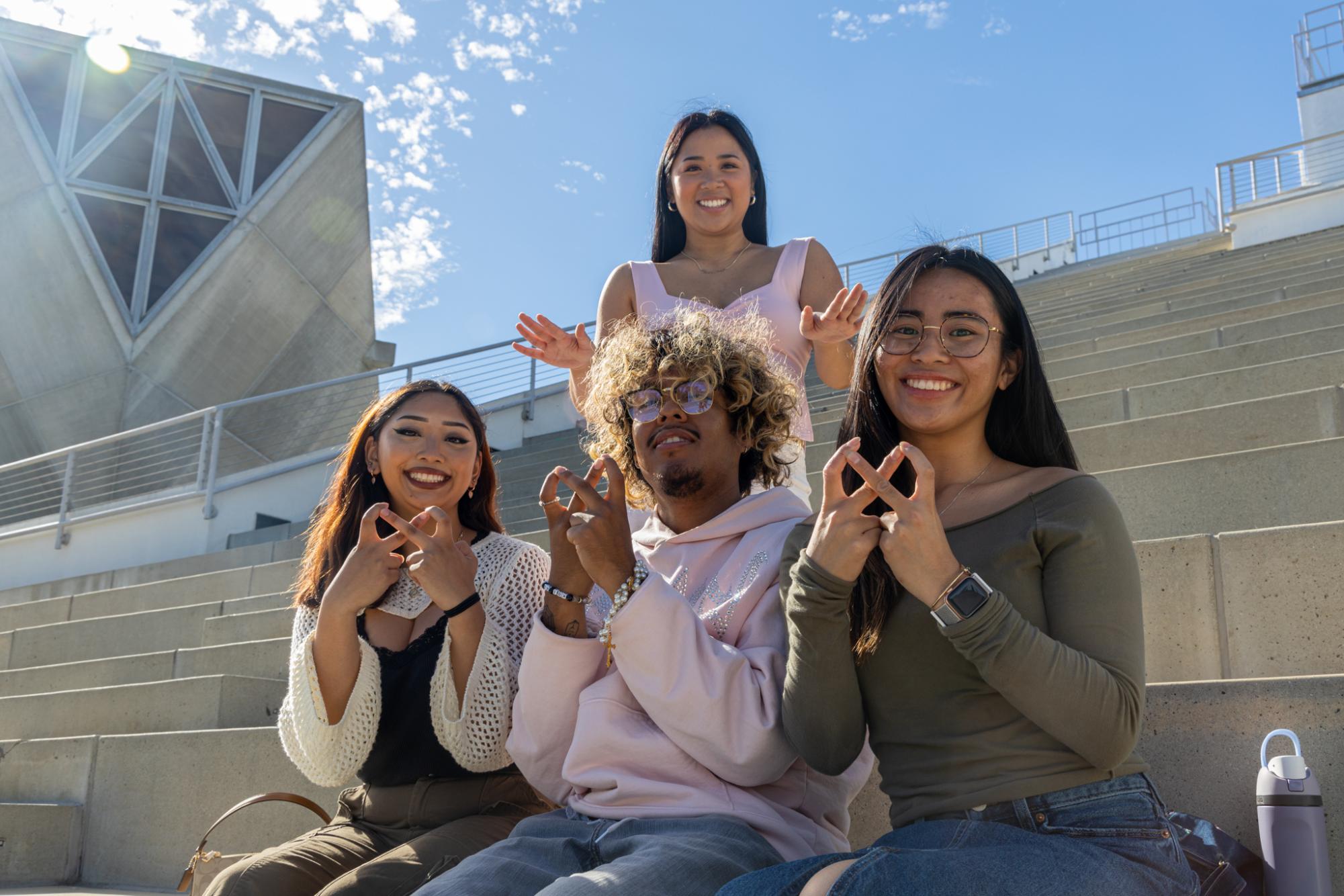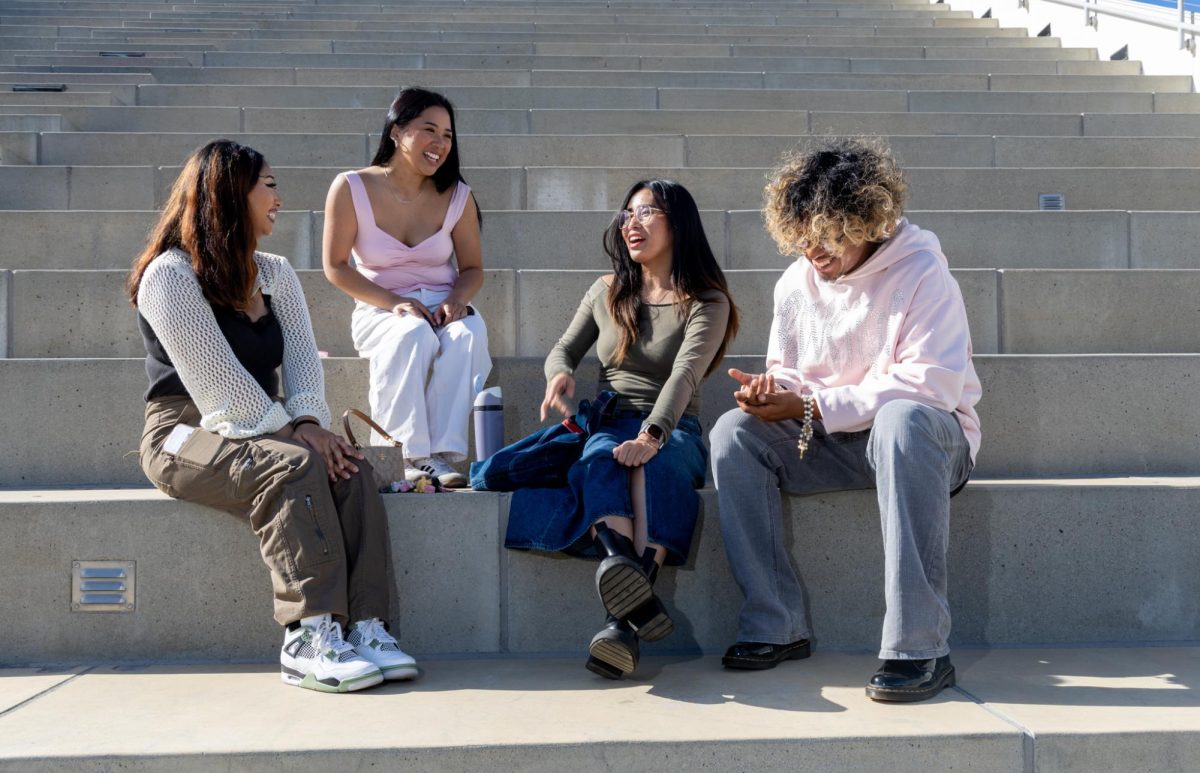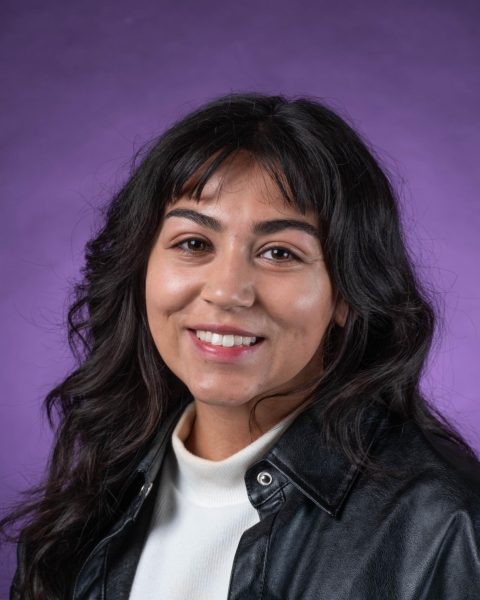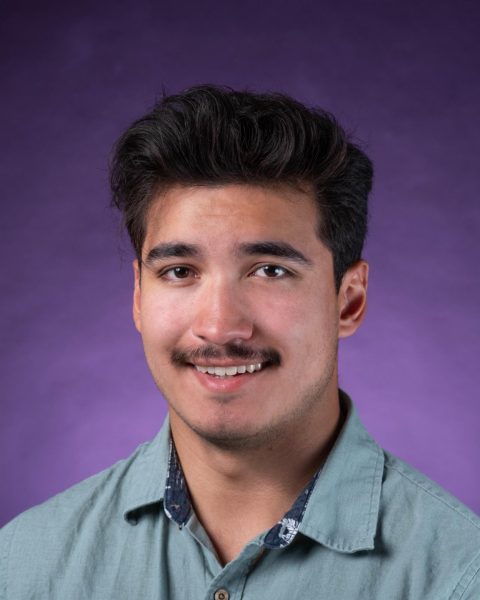The language used in this story is Tagalog.
Attending a university away from home can be a daunting task but San Francisco State University’s Pilipinx American Collegiate Endeavor (PACE) KAPatid program has cracked the code with handpicked friendships that feel like family.
“The key to really having that special time in college— I mean for me— was joining clubs and really being involved in being out there,” said Tia Curameng, KAPatid community coordinator and psychology major. “Through this program, that’s what brings people together. It’s like living in college, instead of just coming here.”
KAPatid is a mentorship program connected with PACE that provides freshman and transfer students the chance to create long-lasting bonds. Though not a requirement for the club, joining KAPatid enriches students’ experience within the campus’ “Kammunity.”
As a commuter student, Curameng didn’t settle for simply returning home after the end of each day. She joined KAPatid her first year and said it offered a “real college experience”.
Now in her third year, and first time as community coordinator, Curameng is in charge of KAPatid pairings. Using strategic planning, mentors and mentees are matched based on similarities in personality applications which ask about strengths, weaknesses and preferences she said.
“It’ll be their first step into meeting new people or it’ll be opening doors for that,” Curameng said. “They’re about to meet new people that will really bring them into the community, which is what they’re looking for.”
PACE members who wish to be mentored fill out an application to become a “Kapatid” [younger sibling]. Those who want to be a “Kuya” [older brother] or “Ate” [older sister], fill out the mentor application.
The idea of PACE and KAPtaid’s tight social relationships originated from SFSU ethnic studies activist strikes from 1968 to 1969, as “part of the liberation front,” Jesse Suratos, public affairs coordinator for KAPatid and a race and resistance major, said. According to the PACE website, the group orients itself toward preserving Filipino American culture with active participation and education in their communities.

As a freshman living on campus, public health major Mhyco Tranate was nervous about making friends. After eating alone in the dining hall before the start of the semester, he asked himself, “Is this my life?”
Since joining PACE and applying as a Kapatid, Tranate and two other mentees matched with the same Ate. Thinking back on his application, Tranate said he got what he hoped for when paired up with one of PACE’s leaders.
“I got really lucky, it’s one of the [club’s activity leaders],” he said. “[It means] having someone to rely on and being able to just talk to them. I just hope to get some kind of family bond, you know, ’cause I don’t have that at home.”
The sibling selections are taken a step further to place Kapatids in homes called “fams.” Fams are made from the initial application similarities but with multiple mentor-mentee relationships, which multiply in size each semester.
Before he joined KAPatid, Suratos was in search of guidance while “figuring things out” in college. Upon joining the program and being placed into a fam, he said fam discussions aren’t solely directed toward academics.
“It’s just genuine life things,” he said. “My fam has been there for some mental episodes and stuff. I don’t have enough money for a therapist, so this is the next best thing. I didn’t always expect my fam to be so caring but we share the same sentiment.”
To preserve PACE’s culture, once Curameng finds complements for all Kapatids, the program hosts a surprise reveal night. Last month Kuyas and Ates welcomed their younger siblings into a new friendship and fam, but the bonds are yet to become strong.
“After they’re paired, it’s up to them,” she said. “They’re in the mentorship role of how they have that connection. I wanted Kuyates [older siblings] to be the first step into the program, to show them what we had to offer, what the world and SF has to offer, like going places in the city, going places around campus.”
Dan Jacob, a political science student, began mentoring his first Kapatid last fall. From experience with his own mentor who helped him grow and offered personal support, Jacob said he has a game plan for mentorship that builds connections outside of school.
“I don’t just see it as a way of making friends,” he said. “I really do take the mentorship part seriously. With my first [Kapatid], we’ve gotten really close. We’ve gone on trips. And I’m so happy to have been able to help him through his emotional stuff and also help him in looking for places and touring apartments with him.”
Those who fill out a mentor application knowingly take on the responsibility of becoming someone’s big brother or sister. However, even with the attentive pairings from the community coordinator, not everyone is dedicated to the mentorship call.
Jacob said that in some cases mentors won’t go through with the KAPtaid program because they are disappointed with their given match.
“You put out a lot of details and sometimes it works out, sometimes it doesn’t,” he said. “I’ve heard in some cases mentors would drop down. I find that really sad because they’re mostly first-year freshmen who are really looking for not just friends but also guidance.”
Now mentoring two more Kapatids after this semester’s reveal, Jacob isn’t taking KAPtaid or his mentees for granted. Knowing firsthand the outcome of becoming someone’s Kuya, he is excited for the friendship ahead.
“I mean, just take a look around, we were all total strangers, just like, what? Five weeks ago?” Jacob said. “These guys are so tight now. I think it’s all worth it.”










makena rutishauser • Oct 28, 2024 at 12:39 pm
Great article. Love the KAPatid program